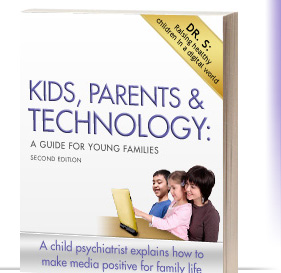Mistreating Pets and Other Animals
Eitan D. Schwarz, M.D., D.L.F.A.P.A., F.A.A.C.A.P.
CLINICAL ASSISTANT PROFESSOR, FEINBERG SCHOOL OF MEDICINE
NORTHWESTERN UNIVERSITY
CHICAGO, IL
Copyright © 2008 Eitan D Schwarz. All rights reserved. This handout may be copied and distributed only for non-profit educational use.
Witnessing violence is known to harm profoundly children’s psychological well-being. We now know that the brain continues to develop through the teen years, so we can surmise that witnessing violence can influence how the brain is formed. These recent discoveries reinforce what we have already known and add urgency to the need for sensitivity to children’s needs.
Losing a loved pet is hard enough, but losing it because of parental violence is much more difficult and complicated. The effects on a child of violence to, or a forced separation from, a loved pet is very similar to those of losing a human friend or loved one.
We know in general that children interpret what they see according to their age and stage of intellectual and social development. How important adults — especially parents — explain to them what they are seeing is always important to growing kids. Most important is what they see adults actually do because children always watch and learn.
Children are affected by violence if they are themselves maltreated physically or psychologically; fear for their safety or well-being; have their routines or their relationships disrupted significantly by violence; witness harm to others; or see their parents upset, injured, or out of control. Like adults, they, too, form strong, loving relationships with pets, especially those capable themselves of returning affection and attachment.
But unlike adults, loss of a pet can be much more difficult for children. Young children do not usually distinguish well between animals and humans, so violence to loved animals is the same as violence done to them or to other loved people. Children learn much about loving, being loved, being cared for, and taking care of others from their experiences with pets. They can also learn about hating, hurting, and being indifferent to others or their own lives from violence to pets. Parents should realize that children often identify with their pet and would fear the same violence befalling them. Or they may feel guilty for being unable to protect the pet.
The experience of losing a pet for any reason is difficult for children, so parents must treat the issue carefully and sensitively. The way the child sees himself and important relationships, present and future, are at stake. While it is best to affirm the value of all life, the importance of animals that become pets is magnified by the personal relationships they have with humans.
When a parent yanks a pet from a child or mistreats it, the child is put in a terrible dilemma, similar to the quandary of being abused or witnessing the abuse of another family member. When a parent devalues an innocent loved pet, s/he demeans the beauty and innocence of a child’s love, and the very the child himself. On the one hand, the child loves the parent and holds him/her up as a model for behavior. On the other, the child suffers from the abuse and feels injured, afraid, and angry at the parent. These contradictory feelings and thoughts are difficult to reconcile for anyone, especially a young child with immature abilities.
The child’s feelings are confusing and make no sense to him intellectually or emotionally. Something has to give, and everybody loses: Depending on the circumstances, the relationship with the offending parent can be weakened, or the child attempts to strengthen it by becoming like the parent. Commonly, the value of the child’s future relationships can forever be tainted with violent behavior or fear of violence. The child often learns that violence is part of all relationships and repeats cruel behavior, repeats victim behavior, or cannot love without fear ever again. The way the brain works handles thoughts and feelings can be disrupted for life.
In any event, there is a silver lining. Since separation and loss are part of life, the loss of a pet can lead to a child’s emotional growth if he is developmentally ready and is helped to mourn his loss appropriately. Therefore, an adequately long period of family grieving time must occur BEFORE the pet is replaced with another. That each life and personal relationship is precious and unique and that one is not interchangeable with another is a good message to emphasize. When a pet must be put down because of major illness or violent behavior, the child must be prepared in a manner suitable to his age and stage of development, given as much control as possible, and protected from the more gruesome aspects of the event.
When a parent abuses a child’s pet, the other parent must regard the episode as an instance of emotional abuse of the child and stop it to protect the child. This is often a difficult and complicated situation for all because these circumstances usually signify an already seriously troubled family that would require professional help. Ideally, the offending parent can be helped to understand the harm s/he has done and genuinely ask for forgiveness. Preferably, both parents would together work hard to frame for the child the value of the pet, of all relationships, of loving and taking care, and of the wrongness of the indifference to the feelings of others and to the lives of beloved pets.



